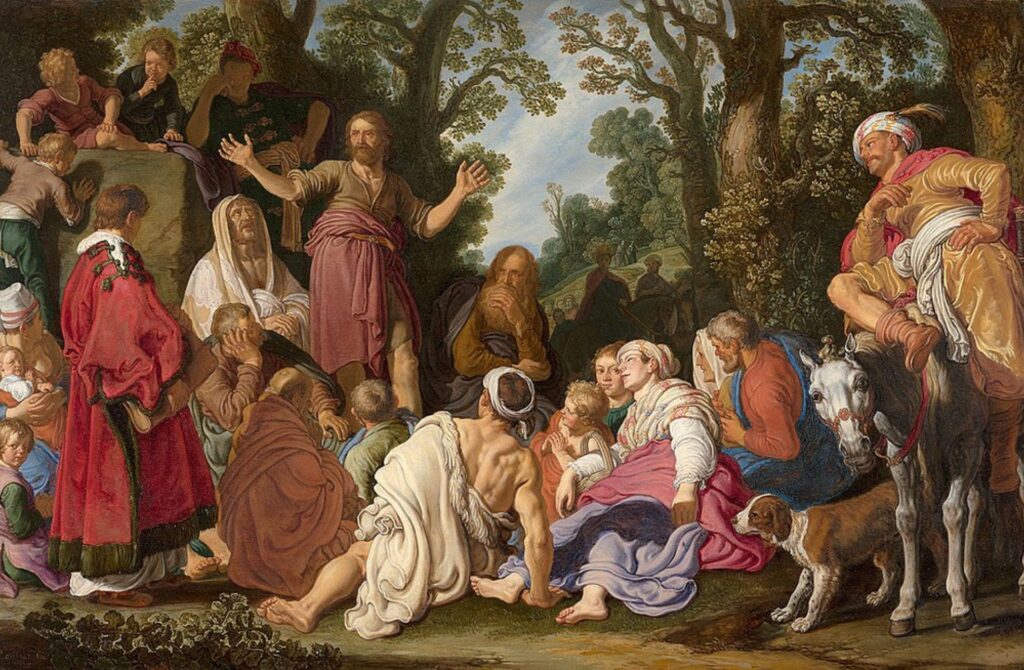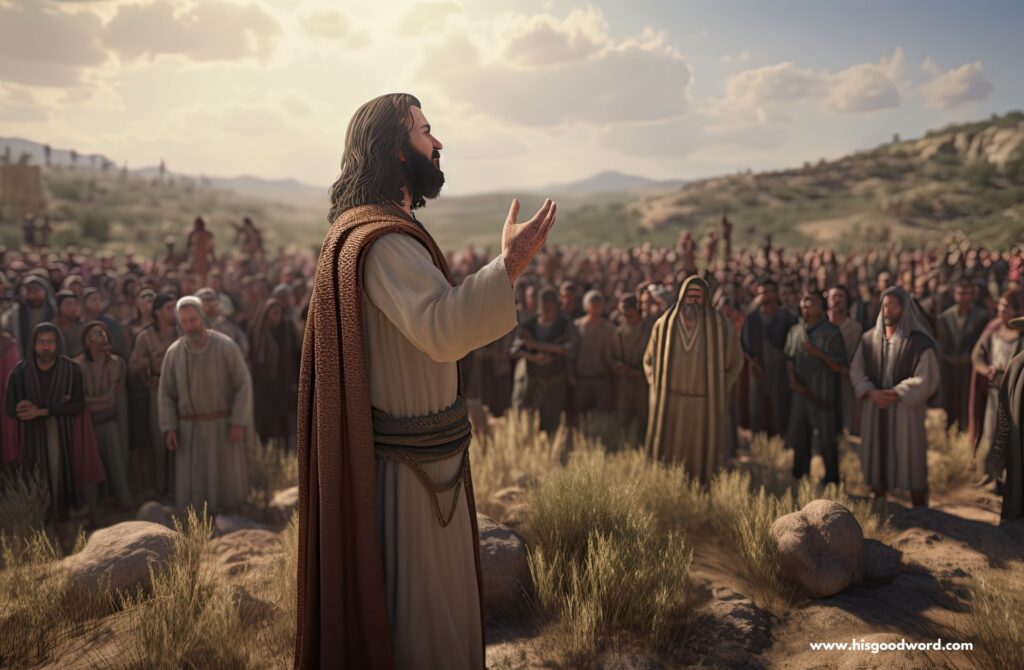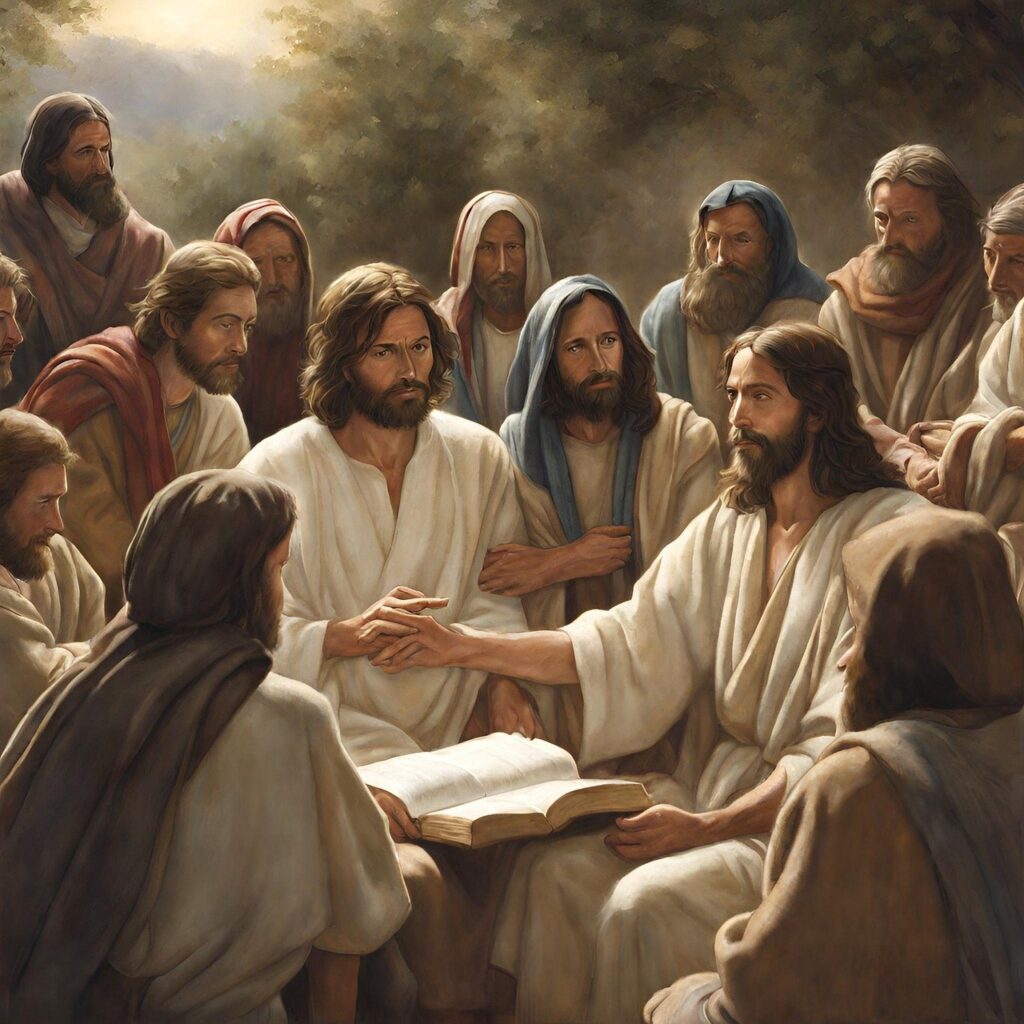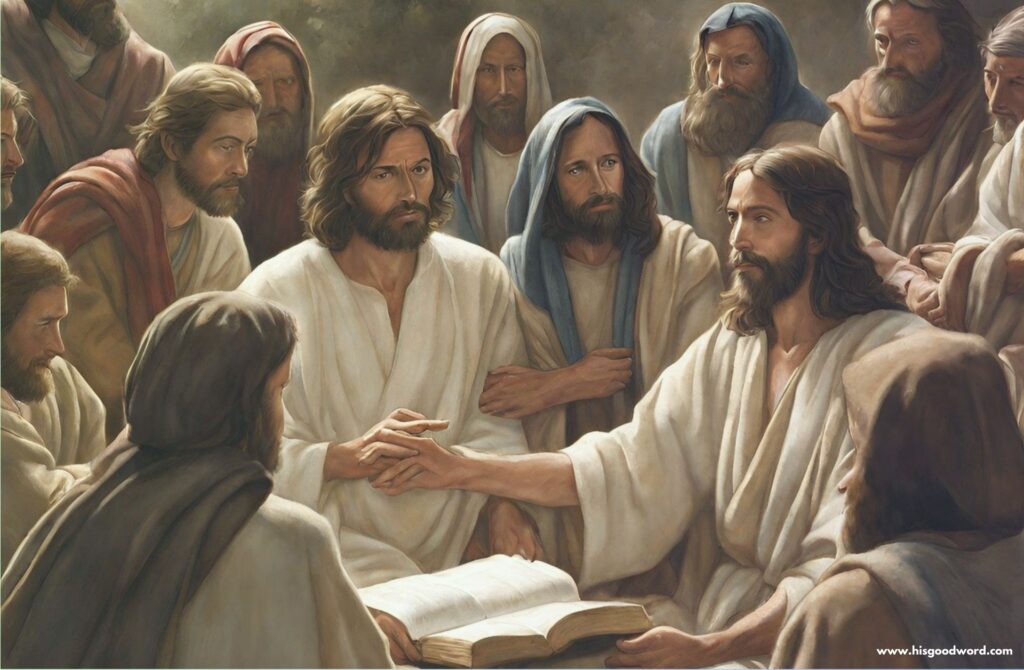Gospel of Luke 3-8 Overview

Gospel of Luke – John the Baptist, Temptation of Jesus, The Calling of Levi, The Twelve Apostles, The Centurion’s Servant, Parables
Gospel of Luke Chapters 3-8 cover pivotal moments in Jesus’ early ministry, emphasizing His divine authority, teachings, and power. Chapter 3 introduces John the Baptist’s ministry and the baptism of Jesus, marking the beginning of His mission. Chapter 4 describes Jesus’ temptation in the wilderness and the start of His public ministry, where He performs miracles and teaches in Galilee, facing initial rejection. Chapters 5 through 8 highlight Jesus’ growing impact through healings, exorcisms, and teachings. He calls His disciples, delivers key parables, and demonstrates authority over nature, sickness, demons, and even death. Throughout these chapters, themes of faith, repentance, and the kingdom of God are central, with Jesus showing compassion and challenging social norms.
Gospel of Luke 3-8 Overview
——————–

Luke Chapter 3 marks a pivotal moment in the New Testament as it sets the stage for the public ministry of Jesus. It emphasizes preparation for the arrival of Jesus through repentance and righteous living. John the Baptist serves as a forerunner, preaching repentance, and the baptism of Jesus marks the divine endorsement of His mission. The genealogy reinforces Jesus’ universal significance, showing His connection to all humanity. The chapter’s message is about spiritual renewal, the coming of salvation through Jesus, and the necessity of preparing oneself to receive Him.

Luke Chapter 4 marks the beginning of Jesus’ public ministry and outlines critical moments that define His mission, His authority, and His message. Luke 4 establishes Jesus as the authoritative, Spirit-filled Messiah who has come to announce and inaugurate the kingdom of God. His ministry is characterized by both miraculous power and a message of salvation that will be resisted by some but offered to all.
- Jesus’ mission is inclusive and urgent: He brings good news to the poor, heals the sick, and reaches out to those marginalized by society, pointing to a mission that transcends national or ethnic boundaries.
- Jesus triumphs over temptation and evil: The temptation in the wilderness and His authority over demons emphasize His power over both sin and spiritual forces.
- Jesus is the fulfillment of prophecy: His reading of Isaiah in the synagogue and His declaration of the scripture’s fulfillment make clear that He is the long-awaited Messiah.
- Jesus’ message and mission will face rejection: Despite His miracles and teachings, many (starting with His own hometown) will reject Him. This foreshadows the broader opposition He will encounter during His ministry.

Luke Chapter 5 recounts several key events early in Jesus’ ministry, provides deep spiritual lessons, and illustrates the transformative power of Jesus’ presence, calling individuals to follow Him, and ushering in a new spiritual reality.
- New Covenant: Jesus introduces a new way of relating to God that contrasts with rigid, old religious systems.
- Jesus’ Authority: Over nature, sickness, sin, and religious traditions.
- Call to Discipleship: Jesus calls ordinary people (like fishermen and tax collectors) to follow Him, promising that they will have a significant role in spreading His message.
- Forgiveness and Healing: Central to Jesus’ ministry is the forgiveness of sins and the restoration of broken lives, whether physically or spiritually.

Luke Chapter 6 presents a series of teachings and actions by Jesus that highlight themes of compassion, justice, the kingdom of God, and the transformation He calls for in His followers’ lives. The chapter focuses on Jesus’ interaction with the Pharisees, His selection of the twelve apostles, and His teachings on living a righteous life in alignment with God’s values. Luke Chapter 6 emphasizes the radical nature of Jesus’ teachings
- Living Out Faith: The final parables stress that true discipleship means hearing and obeying Jesus’ words, building a life that reflects God’s values and withstands life’s challenges.
- Compassion Over Legalism: Jesus redefines how people should interpret God’s laws, focusing on love, mercy, and human need over strict legalism.
- Radical Love and Mercy: The teachings on loving enemies, avoiding judgment, and showing mercy highlight the transformative love that characterizes the kingdom of God. Jesus calls His followers to a higher standard of love and forgiveness.
- Kingdom Values: Through the Beatitudes and the contrasts between the rich and poor, Jesus reveals that God’s kingdom operates on different values than the world. It exalts the lowly and promises justice for the oppressed.
Luke Chapter 7 illustrates Jesus’ authority and His deep compassion for all people regardless of their social or moral standing. The chapter emphasizes His authority over sickness, death, and sin while showing how He extends grace to the humble and marginalized. Through these events, the chapter teaches the power of faith, the importance of humility, and the profound grace of God that reaches even the most marginalized and broken-hearted.
Luke Chapter 7 highlights:
- Reversing Social Norms: Jesus constantly challenges societal and religious norms by associating with Gentiles (the centurion), the poor (the widow), and sinners (the sinful woman). In doing so, He reveals that God’s kingdom is open to all who have faith, regardless of their social or moral status.
- Faith and Authority of Jesus: Jesus’ authority is evident in His power to heal the sick, raise the dead, forgive sins, and demonstrate the fulfillment of Old Testament prophecies. The faith of the centurion and the sinful woman contrasts with the skepticism of the religious leaders.
- Compassion and Mercy: Jesus’ compassion is central to His ministry, as seen in His response to the widow of Nain and the sinful woman. He is deeply moved by human suffering and responds with acts of mercy that restore life and dignity.
- Forgiveness and Grace: The story of the sinful woman emphasizes the boundless grace of Jesus. His willingness to forgive sins, regardless of the sinner’s past, shows that no one is beyond the reach of God’s love and redemption. Forgiveness is extended to those who approach Jesus with humility and faith.
- The Role of John the Baptist: John the Baptist’s doubts are addressed by pointing to the fulfillment of Messianic signs, reaffirming that Jesus is indeed the promised Messiah. John’s role as the forerunner to Jesus is honored, even as Jesus declares that those who enter the kingdom through faith in Him have an even greater privilege.

Luke Chapter 8 provides several key teachings and miracles performed by Jesus, and emphasizes the transformative power of faith and the importance of responding to God’s Word with a receptive and obedient heart. Through His miracles and teachings, Jesus shows His authority over all aspects of life, inviting His followers to trust in Him even in the face of fear and uncertainty. The chapter reveals that Jesus brings restoration and life to those who believe, while also calling people to faithfully spread the light of His truth.
Luke Chapter 8 highlights:
- The Power of Faith: Throughout this chapter, Jesus rewards those who demonstrate faith in Him. Whether it is calming the storm, healing the sick, casting out demons, or raising the dead, faith is the key to accessing Jesus’ power.
- The Authority of Jesus: Jesus’ authority is evident over every realm – nature, spiritual forces, illness, and even death. His power is all-encompassing, showing Him as the sovereign Lord over all creation.
- Hearing and Obeying God’s Word: A key message in this chapter is that it’s not enough to simply hear God’s Word; true disciples are those who internalize it and act on it. The Parable of the Sower and Jesus’ comments about His true family highlight the importance of obedience to God’s will.
- Restoration and Compassion: Jesus restores people to physical, spiritual, and social wholeness. His compassion is seen in the healing of the demon-possessed man, the woman with the issue of blood, and Jairus’ daughter, showing that no one is beyond His reach.
- Fear vs. Faith: The contrast between fear and faith is a recurring theme. The disciples fear the storm, Jairus fears losing his daughter, and the people of the Gerasenes fear Jesus’ power over demons. Jesus calls His followers to move from fear to faith, trusting in His authority.

You must be logged in to post a comment.